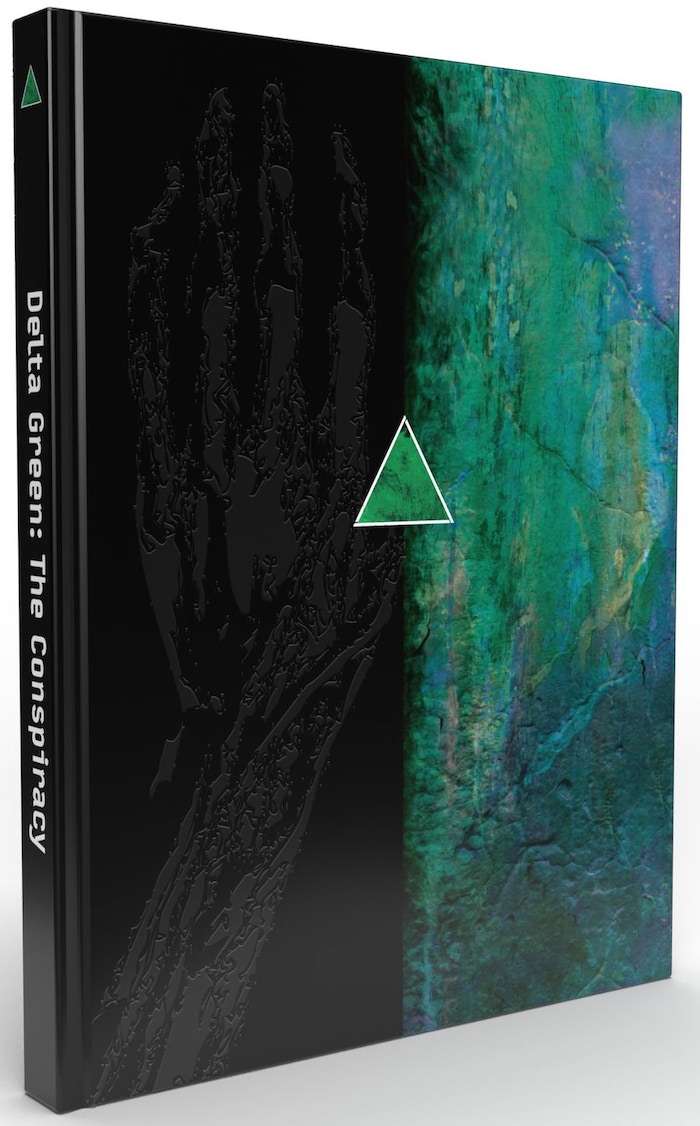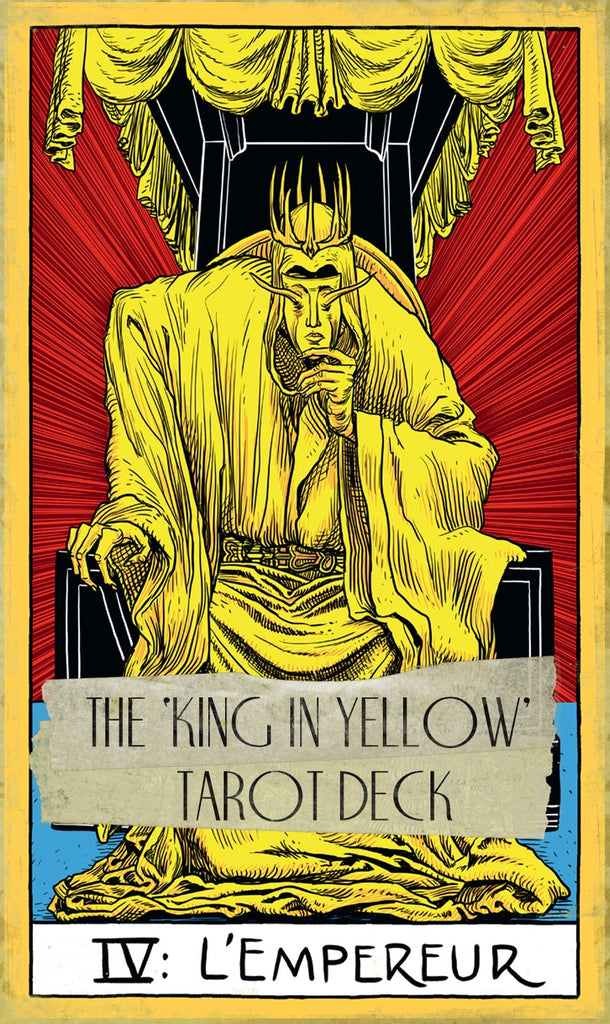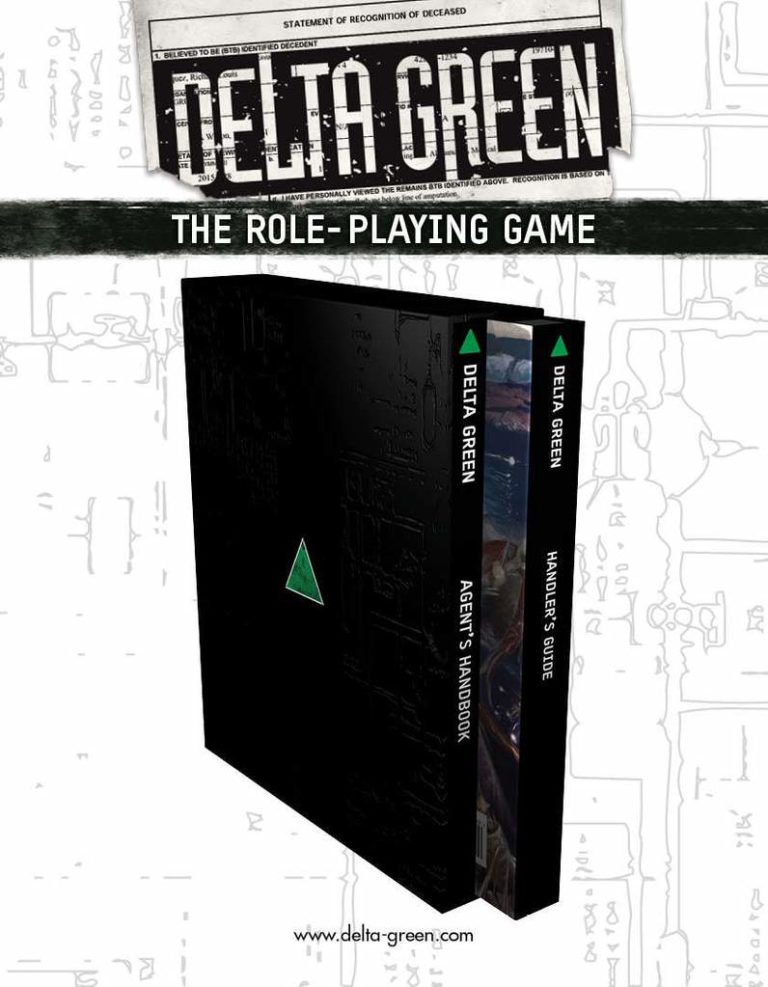A story from Delta Green: Extraordinary Renditions.
Boxes Inside Boxes
By Dennis Detwiller, © 2014
Jennifer pulled the rusted handle of the garage door, but it would not budge. It was 6 a.m. on a Monday, and it was the first night of the year that a frost had gripped the land. She’d struggled to get here, scraping the car window, letting the car heat up, wasting gas. All to rush to a $9.50-an-hour job picking through abandoned lives, searching for valuables. Rushing to be there just in case Marco decided to be, which he never did.
He wasn’t there this morning. No one was there when she drove into the storage facility.
“Don’t think I don’t know when you find good shit,” was the way Marco once put it, shaking a keychain the size of a pistol at her. “I always know when my people find good shit.” Turn it in or hit the road. Don’t try to pawn it. Marco knew EVERYONE in junk and antiques from Westchester to Sheep’s Head Bay. He watched “the eBay” too, or so he said.
She thought Marco mostly ate pork rinds and watched the inside of his eyelids in his taxi stand. But he had the cash, so.…
His “people”: a deaf/mute who perpetually wore either a Home Depot shirt or a SHIT HAPPENS WHEN YOU PARTY NAKED shirt and who Marco only ever referred to as “the other guy,” and herself. She’d seen the mute only occasionally, twice really, picking through storage lockers like her, once in the same row. Marco spent what money he could scrape from his taxi service paying for expired lots, houses and storage lockers. Employees, not so much.
Now, here she was, in the cold. Storeall, locker 11351, payment past due, sold to Marco. She pulled harder on the door, and with a scream it suddenly shot up. She sat down hard on the cold pavement. The door hit the roof with a huge CLANG and rust flaked down in a spray which made her instinctively close her eyes. Birds erupted from the bushes behind her back, arcing to the sky, wings flapping a crazed beat.
A locker filled with file boxes. Again.
Fuck.
∆
File boxes were the worst. They were heavy, for one, but also could hide all manner of valuables—bonds, treasury notes, even cash. One box could take a minute or ten, hours or even days. Once, a year before on one of her first days on the job, she found an engagement ring taped to a photograph filed among tax documents from 1951. Marco later told her that he had sold it to a Jew for three thousand dollars.
If she didn’t tear the boxes apart, one by one, Marco would give her hell. Or fire her and get another.
She dragged a legal box, rotted on the edges, across the cement to her knees. Inside, under a thin patina of dust, were dozens of carefully prepared file folders. She dragged out five, all that fit in a normal handful—some fat, some skinny—and dropped them on top of the box. They kicked up a cloud of filth in waves which rose, looped and dropped again, like fallout, and then vanished in the fluorescent light.
She flipped through a file. Inside were photos of cars, crime scenes, a gun, people: black and white, all very old. The text could not catch her eye. Her gaze ran up and down the carefully typed pages and retained nothing. She could only think; so much work for nothing. Effort poured into the void.
She pushed the box aside, across the concrete with a hiss, and pulled out another. Inside, this one had something wrapped in a foam-like substance, almost like bubble wrap that had yellowed with age. Lifting it, she found it surprisingly heavy. She popped the cello-tape and inside found a dagger the size of her forearm. Old and deadly looking, like something bashed out of a wrought-iron candelabra and twisted and flattened to be dangerous and sharp, but then carefully worked with finer tools. The handle was decorated in filagree, and the markings were completely unrecognizable, though it was clear they were a language. Even before she noticed the gem, covered with a stitch of peeled, yellowing masking tape in the middle of the hilt, she knew Marco would want it.
It was only when she placed the dagger down on the wrapping that she saw the edge of the paper-stuff bent back. There was writing on it, in some sort of marker script. She flipped it over and unfolded it. She looked at the scrawl for a minute before realizing the words, written in haste, were upside down. It read DO NOT STARE AT GEM IN HILT. The chemical stink of the marker, faint with time, was still detectable.
She moved the dagger over to her “keep” pile. So, it was another looney.
In her first year, she’d learned it was pretty common for unclaimed lots to be the result of mental illness. Not everyone went crazy in a loud way that someone noticed. More often than not, those with money boxed their crazy up and piled it in a locker, where it fermented with time into something truly insane. When the bill finally went unpaid, she ended up rooting through it.
In the box with the dagger, more files. She picked up a file, rifled through it, shook it, and let it drop in a pile to the side. Legal depositions or something? Once she had found a signed picture of Orson Welles in a file like that, and managed to sell it online to cover her food for the month. Fuck Marco and his shit job.
She lifted a folder stamped with a green triangle and flipped it open. Inside, numbered, typed lines contained some sort of deposition. The top of each page was stamped NOT FOR RELEASE. In it, on page one, was a photograph of the dagger with a stamp on the picture.
FBI.
She sat on a tarp covered steamer trunk which let out one, solid CRACK, but didn’t collapse, and read the file from the beginning. This one caught her attention.
∆
It was a document about an investigation in 1973 in Ames Virginia. Three FBI agents—Nigel Holloway, Jerry Ham and Kent Wayson—had tracked down the leader of a cult responsible for what were believed to be random attacks on religious facilities near Richmond. In the ensuing shootout at an isolated farmhouse, all but Holloway had been killed.
The cult leader, recently returned from Vietnam, was Sergeant Major Ernest Rowland. Upon leaving the Army he had changed his name legally to ZOGNAR and begun giving heated sermons about the end of the world in a rotted-out trailer home he called the Church of the Cleansing Flame. The FBI had tracked the source of the bullets which had been peppering local religious schools to a rifle purchased by Rowland in California upon his return.
Portions of the document had been heavily edited, struck out with overtypes and black marker. Other portions still had been cut out, and then sections of the pages had been taped together. All in all, nothing too shocking. Until the middle of the file.
A page in the file dictated special steps used to bury the remains of Sergeant Major Rowland. Two other agents, Matthew Marsh and Devin Little, along with Holloway, had apparently, under orders from “the Group,” beheaded Rowland, stuffed his mouth with garlic and thyme, inserted silver ingots in his eyes, and thrown the weighted body bag in a river in Maryland. There were pictures. They were graphic.
She read the rest of the file with great avidity.
The last page was a yellowed sheet of paper marked HARVARD UNIVERSITY. It outlined, in three paragraphs, that ZOGNAR was a Sumerian deity representing death and travel to the afterlife. This entity had also been worshipped in Rome in a so-called “death cult” which persisted until 1499 when agents of the Holy Roman empire “confronted the creature in Ghent and dismissed it. [See attached missive THE JOURNAL OF ABETTO OF SCERA.]”
What?
∆
“Did you find anything?”
“Not yet. Lots of files. Still looking.”
“You want the other guy to help?”
“No, not yet.”
“Okay.”
Click. Fuck you, Marco.
∆
Predictably, she dreamt of a city in the desert. In the dream, the city was crawling across the basin of a desert marked with light blue and black sand. The city struggled and walked and stumbled and shook. As it moved, the buildings on it vibrated and collapsed, kicking up tiny motes of smoke the size of city blocks. Her point of view spun in until she swept through the streets, flying in and then out and and away, again and again, like a bird.
People fell about each other in the streets, tiny and insignificant, like gnats, screaming. The city was the world. The sand was the stars. In the dream, this all made some sort of sense. This transcendence did not last.
It wasn’t that interesting a dream. She woke at two and ran a hand through her hair.
She pulled over her laptop from the mess of covers and flipped up the lid. Nothing happened. Black screen. She tapped the space bar, and the screen came to.
Google.
Nigel Holloway, FBI. In seconds, she was peering at a sixty-something man smiling at a church dinner in Maryland in 2008. “Nigel Holloway, 65, retired FBI agent, enjoys Mark Sutter’s famous apple pie.”
Beneath this image, in the listings: “Find Nigel Holloway’s Address, Phone Number and Public Records in 60 Seconds or Less!”
So she did. It gave her only the basics. Just a street address. No phone number, nothing else. If she wanted the rest, she’d have to pay.
The address was enough. She wrote it down and closed the computer.
The dagger was on the bedside table next to a stack of files, looking incredibly out of place on the plasterboard Ikea furniture. She picked up the blade and flipped in over in her hands. The gem caught the light. Inside the gem, it seemed, something moved.
∆
The first snow had fallen, and he stepped from the house gingerly, on his old man’s stick-legs, and crept uncertainly down the steps. He looked up in the sky and saw only a gray expanse with no definition. The air stank of ozone.
It was only when he made the car, through the light snow, that he realized he had forgotten his keys in the bowl near the door. A bowl that had sat in the same place for twenty-six years now, soon to be twenty-seven. He let out a plume of resigned breath.
“Excuse me,” the voice said behind him.
He turned to find the woman. Red hair, maybe in her thirties. Worn-looking and tired. She wore baggy sweat pants, high boots, a huge jacket that said PETERBILT on it. Cheap, he would say, though he would never say it out loud. He straightened out, startled out of his moment of isolation.
“Can I help you?”
“I…my car.” She pointed back at an economy car; one door, passenger side, stood slightly open. Bright red. Across the street.
Okay. He had places to be. He put on his best smile and followed her to it.
“I’m—” he started, but she interrupted.
“Can you pop the trunk?” she asked, walking around to the front of the hood, hands out.
Fuck, lady.
He leaned in the passenger side, his smile feeling fake and too wide, and grimaced as he stretched, fingers looking for the latch on the far side. He wasn’t paying attention to the sounds, and only afterwards did he realize they were all wrong. The moment his face went in the car, the crunching of her footsteps rapidly began walking around to his side. Then, a blank.
∆
He woke next to her in the car. She sat bolt upright, a look of intensity on her poor-looking face. Bad teeth, bad skin, sallow, too-dyed hair. His hands were handcuffed behind him and he was sitting on them, and they were long since numb. His feet were bound with tape.
His lower right back sang with shrieking pain. His memory dropped off into the void after leaning in the car. She didn’t look at him, but she smiled, nervously.
“I know what you did.” A small pistol was balanced between her knees.
“I think maybe we should pull over and talk about this.”
She looked over at him, and her expression was of rapture. Joy. Her mouth was stretched from ear to ear. Her eyes furrowed from the effort of grinning.
“I’ll tell you what. I’ll put two in your stomach to see what that makes your smart-ass Fed mouth say? How about it?”
His training faded into a deep humming fear. He said nothing.
They drove in silence. Twenty-two years in the FBI had taught him enough to know when a person meant a threat of violence.
∆
The signage was confusing. Or his mind wasn’t working properly. Or both. They cut down tracks and backroads and, curiously, she used an old gas-station map. Stopping to consider it—even though there was a cellphone in the tray in the center console—she traced routes with soot-covered fingers.
“Yeah,” she said, finally, finding something marked RT 232 Mile 12. “This is it. It wasn’t even on a marker, last time.”
They drove down the road until it became a dirt track, peppered and edged with dirty snow.
“We’re going to have some fun.”
∆
They parked in a clearing that had been hastily shoveled, revealing a rough oval, twenty feet by ten. On it a blue tarp was folded, blowing in a light wind, folded around something heavy.
She came around the car, holding the pistol at her side. She popped the door and suddenly jammed the pistol as hard as it would go into his right eye socket, forcing it there, his face screaming in pain under the pressure. His breath came in gasps, and there was a click, and then suddenly his legs were free, the tape cut.
“Get out.” The gun vanished from his eye, leaving afterimages and a fading pain.
She stood back at a safe distance, watching him.
“Why—” he began, but she answered by lifting her arm so that the barrel peered right into his face. His hands, madly, wanted to come up to cover his face, but the cuffs would not allow them past the small of his back.
“Get over there. You’ll see.” And she giggled. She GIGGLED.
He stumbled through the mud over to the tarp. They were miles from anywhere. Miles and miles. No one would hear.
“Under the tarp,” she said.
He struggled to keep his balance, and shifted it with his foot.
On it, laid out with precision, was a folded body bag, a large industrial hacksaw, a bundle of garlic cloves, a tied cluster of thyme, and two lead ingots topped by once-molten silver.
“It’s a shame I woke so late. Back in 1984, Agent Little fled somewhere I can’t get to him. But there’s you and Agent Marsh. Or there was you and Agent Marsh. Now there’s just you.
“I have to say, Agent Marsh fought much harder than this.
“What’s the matter? Don’t you remember me, Agent Holloway? Because I remember you.”
By Dennis Detwiller, © 2014





